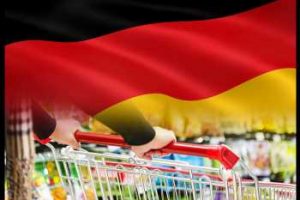German Inflation Sets New High

Germany’s inflation unexpectedly accelerated further in April to set a new high in over four decades, driven by runaway energy prices and increased production costs due to supply bottlenecks in the backdrop of the Russia’s invasion of Ukraine.
The flash consumer price index rose 7.4 percent year-on-year following a 7.3 percent increase in the previous month, preliminary estimates from Destatis showed Thursday. Economists had expected annual inflation to slow to 7.2 percent.
“A similarly high inflation rate was last recorded in Germany in autumn 1981 when mineral oil prices had sharply increased, too, as a consequence of the first Gulf war between Iraq and Iran,” Destatis said.
The harmonized index of consumer prices, or HICP, rose 7.8 percent annually in April after a 7.6 percent increase in March. Economists had expected the rate to remain steady.
Compared to the previous month, the CPI rose 0.8 percent and the EU measure of inflation climbed 0.7 percent. Economists had forecast increases of 0.6 percent and 0.4 percent, respectively.
Food inflation accelerated to 8.5 percent from 6.2 percent. Energy inflation eased slightly, but remained high at 35.3 percent versus 39.5 percent in the previous month.
Services costs grew 2.9 percent year-on-year after a 2.8 percent increase in March. Rents rose 1.6 percent annually following a 1.5 percent gain in the previous month.
“Additional factors are delivery bottlenecks due to interruptions in supply chains caused by the Covid-19 pandemic and the marked price increases at upstream stages in the economic process, Destatis said.
Economists widely expect core inflation, which excludes food and energy prices, to remain high in the coming months as recent surveys suggested inflationary pressures building up in the pipeline. Producer price inflation hit a record 30.9 percent in March.
Energy prices have risen sharply since the war in Ukraine and that is strongly influencing inflation across the region as many European countries are dependent on gas and oil supplies from Russia. The rising trend in energy prices is expected to continue for sometime.
Several European countries including Germany are trying to reduce their dependence on Russian gas.
This week, the state-owned Gazprom shut gas supplies to Poland and Bulgaria, and Moscow demanded that European customers of its energy should pay in rubles, causing an uproar.
Elsewhere in Euro area on Thursday, Spain’s harmonized consumer price growth eased to 8.3 percent from 9.8 percent, mainly due to lower energy inflation. Meanwhile, core inflation climbed to 4.4 percent from 3.4 percent.
Eurozone inflation data for April is due on Friday. The headline figure is widely expected to remain steady at 7.4 percent and core inflation is forecast to rise from 2.9 percent.
“In response to continued very high inflation and rising price pressures we expect the ECB to raise the deposit rate three times, to +0.25%, by the end of the year,” Capital Economics economist Andrew Kenningham said.
Destatis is set to release the final figures for Germany’s April inflation on May 11.
Source: Read Full Article
